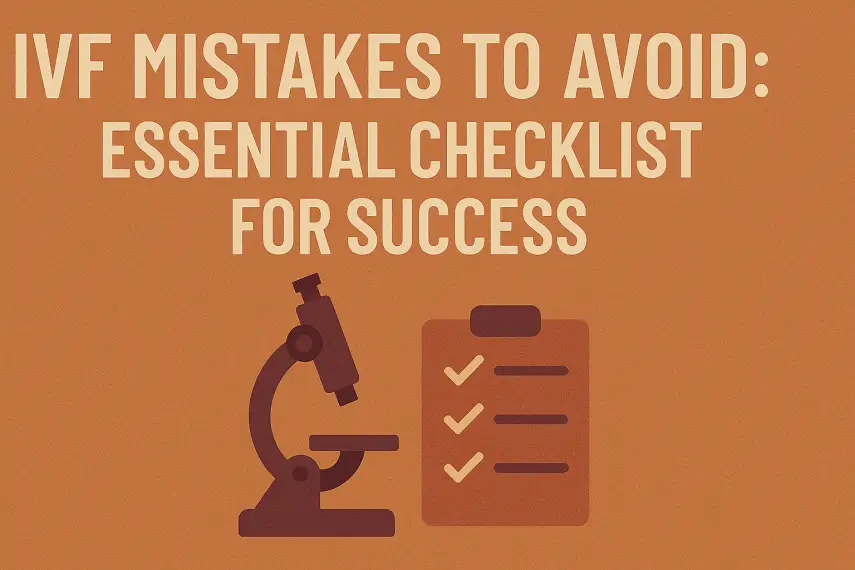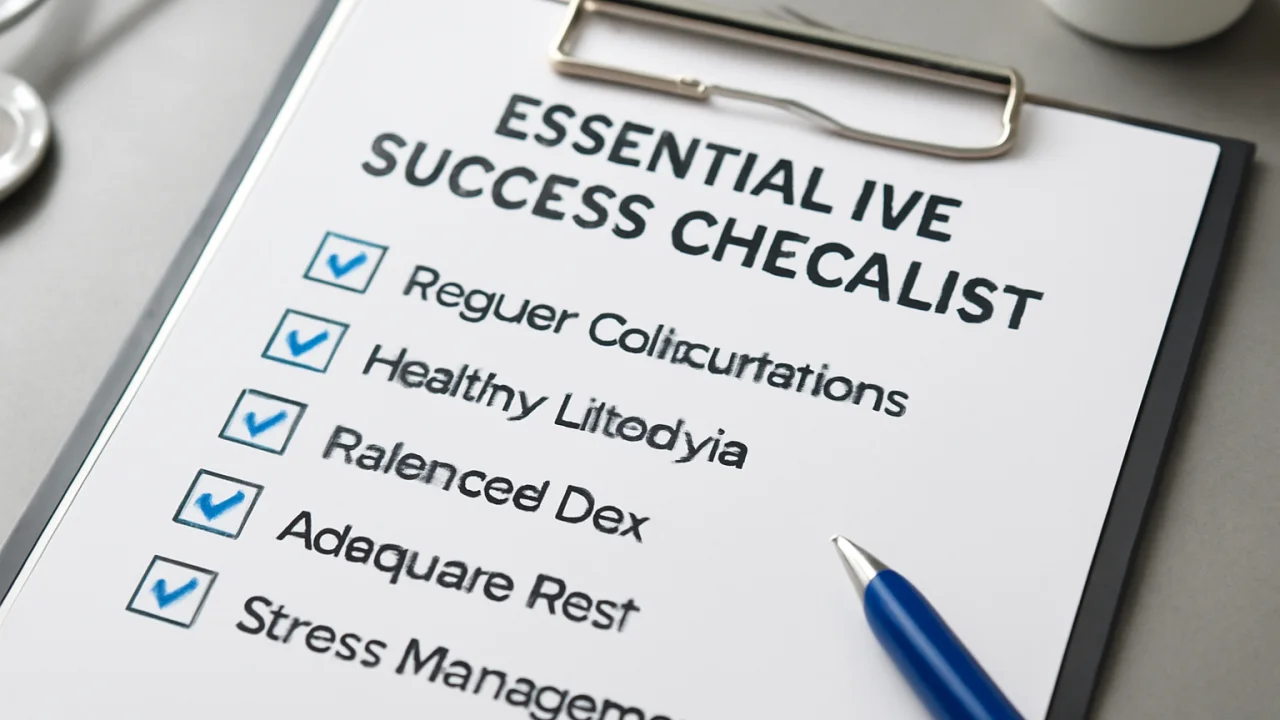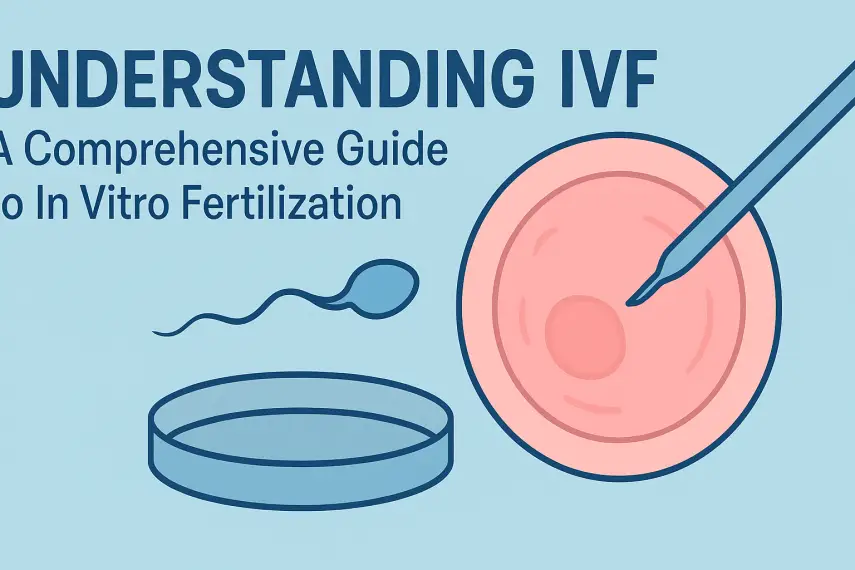
IVF Mistakes to Avoid: Essential Checklist for Success
📑 Contents
In vitro fertilization (IVF) is a complex journey, often filled with hope and anxiety. Many couples and individuals invest significant time, emotion, and resources into IVF, only to find that small, preventable mistakes can hinder their chances of success. Knowing the most common IVF mistakes to avoid—and following an essential checklist—can greatly improve your outcomes and peace of mind throughout the process.
Understanding the IVF Process

Before diving into the mistakes to avoid, it’s crucial to understand the IVF process. IVF involves stimulating the ovaries, retrieving eggs, fertilizing them in a lab, and transferring embryos back into the uterus. Each stage carries its own challenges and requirements for optimal results.
| Stage | Description | Common Pitfalls |
|---|---|---|
| Ovarian Stimulation | Hormones stimulate egg development | Incorrect medication timing/doses |
| Egg Retrieval | Eggs surgically removed from ovaries | Poor pre-procedure preparation |
| Fertilization | Eggs and sperm combined in lab | Low-quality gametes |
| Embryo Transfer | Embryos placed in uterus | Improper timing, uterine issues |
Top IVF Mistakes to Avoid

Below are some of the most frequent IVF mistakes to avoid, organized by stage and decision point.
1. Inadequate Clinic Research
- Not checking clinic success rates
- Overlooking doctor’s experience and credentials
- Ignoring patient reviews and testimonials
2. Skipping Essential Pre-IVF Tests
- Hormonal evaluations (AMH, FSH, LH, TSH, prolactin)
- Uterine and ovarian imaging
- Semen analysis for male partners
- Infectious disease screening
3. Poor Medication Management
- Missing doses or incorrect timing
- Not communicating side effects to doctors
- Improper storage of medications
4. Lifestyle Factors Overlooked
- Smoking and excessive alcohol use
- Unmanaged stress
- Poor nutrition and lack of exercise
- Exposure to environmental toxins
5. Not Addressing Underlying Health Conditions
- Untreated thyroid disorders
- Polycystic ovary syndrome (PCOS)
- Endometriosis, fibroids, or uterine anomalies
- Uncontrolled diabetes or hypertension
6. Inconsistent Communication with Clinic
- Not reporting symptoms or concerns promptly
- Misunderstanding instructions
- Missing scheduled appointments or tests
7. Emotional and Mental Health Neglect
- Not seeking support or counseling
- Ignoring the impact of stress and anxiety
- Lack of communication with partner/support system
Essential IVF Success Checklist

| Checklist Item | Why It’s Important | Action Steps |
|---|---|---|
| Choose a reputable clinic | Higher success rates, better care | Research, verify credentials, consult reviews |
| Complete all pre-IVF tests | Identify issues early | Follow doctor’s recommendations |
| Adhere strictly to medication schedule | Ensures optimal response | Set reminders, double-check instructions |
| Optimize lifestyle factors | Improves fertility and health | Quit smoking, eat well, exercise moderately |
| Manage underlying conditions | Prevents complications | Work with specialists if needed |
| Communicate openly with care team | Prevents misunderstandings | Ask questions, clarify doubts |
| Address emotional health | Reduces stress, supports coping | Consider counseling, join support groups |
IVF Preparation: What to Do Before You Start
Preparation plays a pivotal role in IVF outcomes. Here’s a comprehensive pre-IVF preparation list:
- Schedule a thorough fertility assessment for both partners
- Discuss all medications and supplements with your doctor
- Maintain a healthy BMI (body mass index)
- Update vaccinations as needed
- Start a prenatal vitamin with folic acid
- Limit caffeine intake
- Plan for time off and logistical support during appointments
| Preparation Step | Recommended Timing | Key Benefit |
|---|---|---|
| Fertility assessment | 3-6 months before IVF | Identifies obstacles early |
| Lifestyle changes | 3+ months before IVF | Improves egg & sperm quality |
| Start prenatal vitamins | 2-3 months before IVF | Supports embryo development |
Frequently Asked Questions (FAQ)
1. What is the most common mistake during IVF?
One of the most common mistakes is not following the medication schedule accurately, which can impact egg development and the timing of procedures.
2. How important is lifestyle in IVF success?
Lifestyle factors such as smoking, nutrition, and stress play a significant role in fertility and IVF outcomes. Positive changes can improve success rates.
3. Should both partners undergo testing before IVF?
Yes. Both partners should complete comprehensive fertility testing to identify any treatable issues and maximize the chances of success.
4. Can emotional stress affect IVF outcomes?
While the evidence is mixed, high stress levels can impact hormonal balance and overall well-being, potentially influencing IVF results.
5. Is it necessary to take time off work during IVF?
Many patients find it helpful to plan for time off, especially during egg retrieval and embryo transfer days, to reduce stress and allow recovery.
6. What if I miss a medication dose?
Contact your fertility clinic immediately for guidance. Do not double up on doses without medical advice.
7. How do I choose the right IVF clinic?
Research clinic success rates, doctor credentials, available technology, and patient reviews. Schedule consultations and ask detailed questions.
8. Are there risks in transferring multiple embryos?
Yes. Transferring multiple embryos increases the risk of multiple pregnancies, which carry higher health risks for both mother and babies.
Conclusion
IVF is a demanding but potentially rewarding path to parenthood. By understanding common IVF mistakes to avoid and following a detailed checklist, you can increase your chances of success and minimize avoidable setbacks. For more personalized advice, always consult a qualified reproductive specialist. Ready to take the next step? Explore more resources or reach out to a trusted IVF clinic today.











